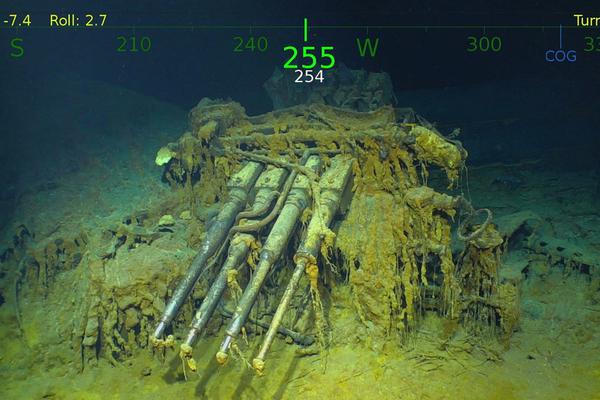
1. The five functions of the operating system are processor management, memory management, device management, file management and job management. Processor management The most basic function of processor management is to process interrupt events. After configuring the operating system, various events can be processed.
2. The main function of the computer operating system is process management, and its work is mainly process scheduling. In the case of a single user and a single taskNext, the processor is only monopolized by one user's task, and the process management work is very simple.
3. Operating System (abbreviation: OS) is a group of interrelated system software programs that supervise and control computer operation, use and run hardware, software resources and provide public services to organize user interaction.
4. Five major management functions of the operating system: (1) Job management: including tasks, interface management, human-computer interaction, graphical interface, voice control and virtual reality, etc. ( 2) File management: also known as information management. ( 3) Storage management: The essence is the management of storage "space", which mainly refers to the management of the main memory.
Any information system has five basic functions, namely: information collection and recording (input); information storage; information processing; information transmission; information output .
According to the functional introduction of the information system, the information system has five basic functions: input, storage, processing, output and control. Different functions have different functions, such as input function: the input function of the information system is determined by the purpose to be achieved by the system, the ability of the system and the permission of the information environment.
Five basic functions of the information system: input, storage, processing, output and control. Input function: The input function of the information system is determined by the purpose to be achieved by the system, the ability of the system and the permission of the information environment.Storage function: Storage function refers to the ability of the system to store various information and data. Mainly including: statistical functions.
The operating system has five functions: processor management: mainly controls and manages the work of the CPU. Storage management: mainly allocate and manage memory. Device management: mainly manage basic input and output devices. File management: responsible for the organization, storage, operation and protection of computer files.
The functions of the computer operating system include: processor management, memory management, device management, file management, job management and other functional modules. Processor management. The most basic function of processor management is to handle interrupt events. The processor can only detect interrupt events and generate interrupts and cannot process them.
The main function of the computer operating system is process management, and its main work is process scheduling. In the case of a single user and a single task, the processor is only monopolized by one user's task, and the work of process management is very simple.
The main functions of the operating system are process and processor management, job management, storage management, device management and file management, as follows: process and processor management. Because the execution of the program must rely on the processor, only one program flow can be processed and executed at any time. Homework management.
I) Processor management The most basic function of processor management is to handle interrupt events. The processor can only detect interrupt events and generate interrupts, and cannot handle these interrupt events. After configuring the operating system, all types of events can be handled.Another function of processor management is processor scheduling.
Five management functions of the operating system: job management: including tasks, interface management, human-computer interaction, graphical interface, voice control and virtual reality, etc. File management: also known as information management. Storage management: The essence is the management of storage "space", which mainly refers to the management of the main memory.

The storage management function of the operating system is to manage memory resources. It mainly realizes memory allocation and recovery, storage protection and memory expansion. The device management of the device management operating system is responsible for allocating and recycling external devices, and controlling external devices to operate according to the requirements of user programs.
The functions of the computer operating system include: processor management, memory management, device management, file management, job management and other functional modules. Processor management. The most basic function of processor management is to handle interrupt events. The processor can only detect interrupt events and generate interrupts and cannot process them.
The five functions of the operating system are processor management, memory management, device management, file management and job management.Processor management The most basic function of processor management is to process interrupt events. After configuring the operating system, various events can be processed.
European Cup live-APP, download it now, new users will receive a novice gift pack.
1. The five functions of the operating system are processor management, memory management, device management, file management and job management. Processor management The most basic function of processor management is to process interrupt events. After configuring the operating system, various events can be processed.
2. The main function of the computer operating system is process management, and its work is mainly process scheduling. In the case of a single user and a single taskNext, the processor is only monopolized by one user's task, and the process management work is very simple.
3. Operating System (abbreviation: OS) is a group of interrelated system software programs that supervise and control computer operation, use and run hardware, software resources and provide public services to organize user interaction.
4. Five major management functions of the operating system: (1) Job management: including tasks, interface management, human-computer interaction, graphical interface, voice control and virtual reality, etc. ( 2) File management: also known as information management. ( 3) Storage management: The essence is the management of storage "space", which mainly refers to the management of the main memory.
Any information system has five basic functions, namely: information collection and recording (input); information storage; information processing; information transmission; information output .
According to the functional introduction of the information system, the information system has five basic functions: input, storage, processing, output and control. Different functions have different functions, such as input function: the input function of the information system is determined by the purpose to be achieved by the system, the ability of the system and the permission of the information environment.
Five basic functions of the information system: input, storage, processing, output and control. Input function: The input function of the information system is determined by the purpose to be achieved by the system, the ability of the system and the permission of the information environment.Storage function: Storage function refers to the ability of the system to store various information and data. Mainly including: statistical functions.
The operating system has five functions: processor management: mainly controls and manages the work of the CPU. Storage management: mainly allocate and manage memory. Device management: mainly manage basic input and output devices. File management: responsible for the organization, storage, operation and protection of computer files.
The functions of the computer operating system include: processor management, memory management, device management, file management, job management and other functional modules. Processor management. The most basic function of processor management is to handle interrupt events. The processor can only detect interrupt events and generate interrupts and cannot process them.
The main function of the computer operating system is process management, and its main work is process scheduling. In the case of a single user and a single task, the processor is only monopolized by one user's task, and the work of process management is very simple.
The main functions of the operating system are process and processor management, job management, storage management, device management and file management, as follows: process and processor management. Because the execution of the program must rely on the processor, only one program flow can be processed and executed at any time. Homework management.
I) Processor management The most basic function of processor management is to handle interrupt events. The processor can only detect interrupt events and generate interrupts, and cannot handle these interrupt events. After configuring the operating system, all types of events can be handled.Another function of processor management is processor scheduling.
Five management functions of the operating system: job management: including tasks, interface management, human-computer interaction, graphical interface, voice control and virtual reality, etc. File management: also known as information management. Storage management: The essence is the management of storage "space", which mainly refers to the management of the main memory.

The storage management function of the operating system is to manage memory resources. It mainly realizes memory allocation and recovery, storage protection and memory expansion. The device management of the device management operating system is responsible for allocating and recycling external devices, and controlling external devices to operate according to the requirements of user programs.
The functions of the computer operating system include: processor management, memory management, device management, file management, job management and other functional modules. Processor management. The most basic function of processor management is to handle interrupt events. The processor can only detect interrupt events and generate interrupts and cannot process them.
The five functions of the operating system are processor management, memory management, device management, file management and job management.Processor management The most basic function of processor management is to process interrupt events. After configuring the operating system, various events can be processed.
Free sports events uefa champions league app android
author: 2025-02-24 01:30Hearthstone arena deck Builder
author: 2025-02-24 01:27UEFA Champions League live streaming app
author: 2025-02-24 00:46App to watch Champions League live free
author: 2025-02-24 01:52App to watch Champions League live free
author: 2025-02-24 00:29 Free sports events uefa champions league app android
Free sports events uefa champions league app android
714.98MB
Check Walletinvestor digi plus
Walletinvestor digi plus
722.86MB
Check Europa League app
Europa League app
119.65MB
Check Hearthstone Arena win rate
Hearthstone Arena win rate
152.82MB
Check Casino free 100 no deposit
Casino free 100 no deposit
466.33MB
Check DigiPlus
DigiPlus
389.18MB
Check Casino Plus free 100
Casino Plus free 100
236.98MB
Check Bingo Plus stock
Bingo Plus stock
116.11MB
Check UEFA TV
UEFA TV
411.76MB
Check Arena Plus login
Arena Plus login
125.53MB
Check DigiPlus stock
DigiPlus stock
548.96MB
Check DigiPlus
DigiPlus
998.16MB
Check UEFA European championship
UEFA European championship
521.41MB
Check Casino Plus
Casino Plus
181.31MB
Check Arena Plus login
Arena Plus login
774.25MB
Check Free sports events uefa champions league app android
Free sports events uefa champions league app android
187.51MB
Check DigiPlus
DigiPlus
297.74MB
Check Hearthstone Wild Decks
Hearthstone Wild Decks
445.99MB
Check UEFA Champions League
UEFA Champions League
353.45MB
Check UEFA Champions League standings
UEFA Champions League standings
498.89MB
Check LR stock price Philippines
LR stock price Philippines
772.76MB
Check Casino Plus app
Casino Plus app
974.35MB
Check UEFA TV
UEFA TV
175.62MB
Check casino plus free 100
casino plus free 100
548.84MB
Check App to watch Champions League live free
App to watch Champions League live free
352.61MB
Check Hearthstone arena class win rates reddit
Hearthstone arena class win rates reddit
627.16MB
Check Walletinvestor digi plus
Walletinvestor digi plus
822.63MB
Check DigiPlus Philippine
DigiPlus Philippine
767.16MB
Check App to watch Champions League live free
App to watch Champions League live free
283.18MB
Check UEFA Europa League
UEFA Europa League
215.38MB
Check Hearthstone arena deck Builder
Hearthstone arena deck Builder
798.87MB
Check Europa League app
Europa League app
429.33MB
Check Arena Plus login
Arena Plus login
564.93MB
Check UEFA Champions League live streaming free
UEFA Champions League live streaming free
167.23MB
Check LR stock price Philippines
LR stock price Philippines
742.76MB
Check Hearthstone Wild Decks
Hearthstone Wild Decks
157.83MB
Check
Scan to install
European Cup live to discover more
Netizen comments More
2480 Bingo Plus
2025-02-24 03:05 recommend
1044 DigiPlus stock
2025-02-24 02:06 recommend
478 UEFA Europa League
2025-02-24 01:31 recommend
2330 UEFA Champions League live streaming free
2025-02-24 00:41 recommend
1657 UEFA Champions League standings
2025-02-24 00:30 recommend